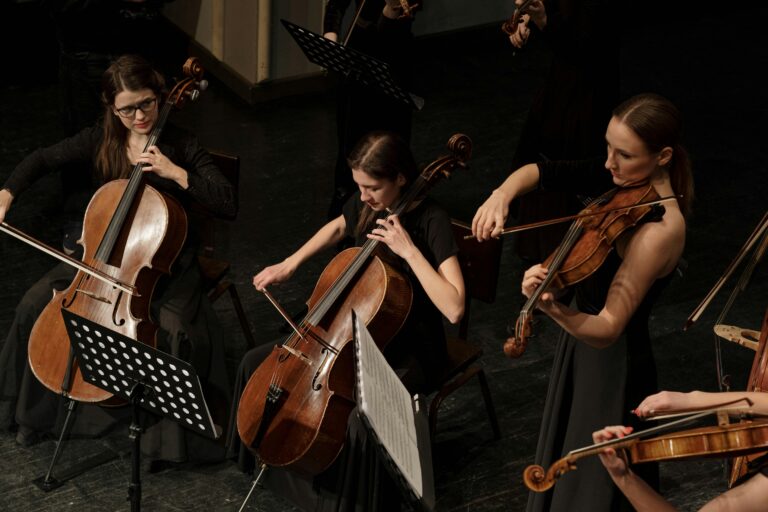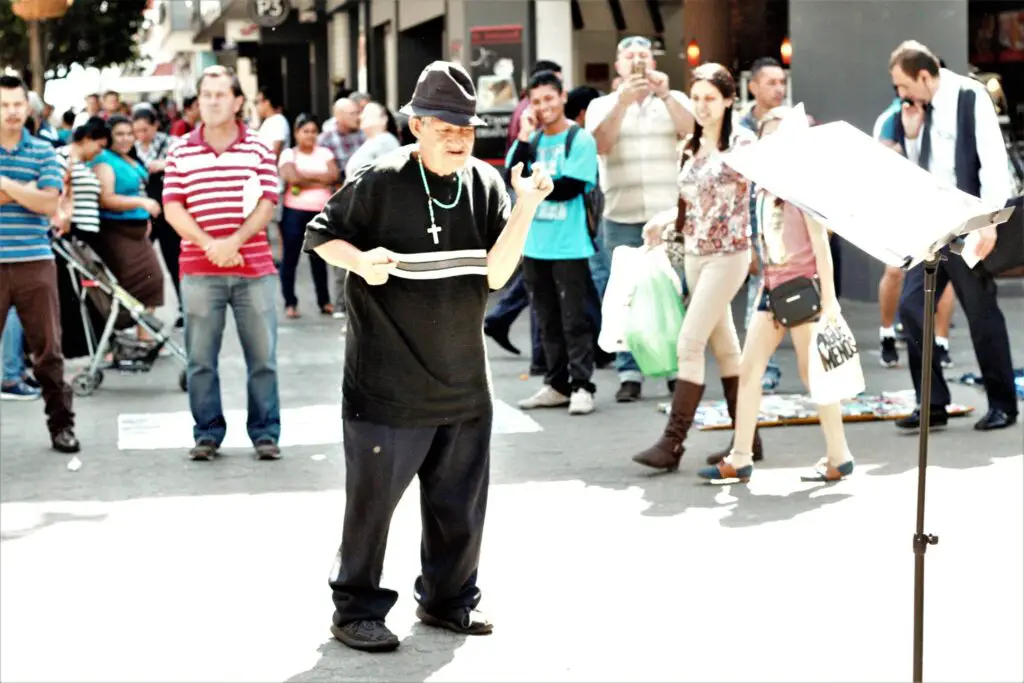Carmen Lyra, the pseudonym of María Isabel Carvajal Quesada, emerges as one of the most prominent figures in Costa Rica’s cultural landscape. Born in San José on January 15, 1887, and passing away in exile in Mexico on May 14, 1949, her life and work intertwine with key moments in the history and social evolution of her country. A writer, educator, and political activist, Lyra not only left a literary legacy that still resonates in Costa Rican literature but also stood out for her tireless fight for the rights of the underprivileged, innovative education, and social equity.
As a writer, Carmen Lyra is especially remembered for Los Cuentos de Mi Tía Panchita, a collection of stories based on Costa Rican and universal folklore that has become a classic of children’s literature in Latin America. However, her work extends much further, including novels and essays that explore everything from psychological intimacy to social and political criticism. Her first novel, En una silla de ruedas (1918), is a profound portrait of national customs seen through the eyes of a paralyzed child, serving as a lens through which to examine early 20th-century Costa Rican society.
In the field of education, Lyra was a pioneer in introducing and promoting the Montessori method in Costa Rica, founding the country’s first Montessori school for underprivileged children in San José in 1926. Her pedagogical approach focused on the child’s holistic development, considering physical, emotional, and intellectual aspects, reflecting her forward-thinking vision of education as a tool for social transformation.
Her commitment to social justice led her to actively participate in politics, contributing to the founding of the Communist Party of Costa Rica in 1931. Through her activism, Lyra fought for the rights of women, workers, and children, always linking education with social change.
The significance of Carmen Lyra transcends the boundaries of literature and education, making her a symbol of resistance and the struggle for a more just society. Recognized posthumously for her contributions to culture and education, her name has been enshrined among Costa Rica’s most distinguished figures, earning her the title of Benemérita de la Cultura Nacional. Her life and work continue to inspire generations in Costa Rica and beyond, reminding us of the power of words and education as engines of social change.
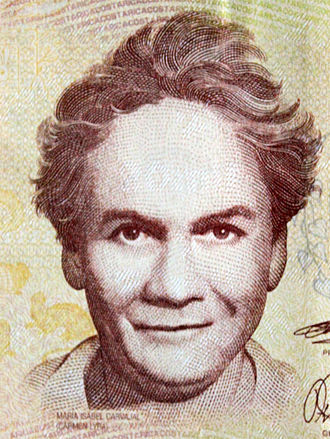
1. Historical and Cultural Context that Shaped Carmen Lyra
The historical and cultural context of Costa Rica during Carmen Lyra’s lifetime was marked by significant political changes, social movements, and a fervent desire for educational and labor reform. At the beginning of the 20th century, Costa Rica experienced political turmoil that eventually led to confrontations with the dictatorship of Federico Tinoco Granados. Carmen Lyra, known for her social and political commitment, played an active role in this period of transformation, characterized by the struggle against dictatorship and the fight for workers’ and women’s rights.
In 1919, Lyra participated in protests against Tinoco’s dictatorship, demonstrating her early involvement in social movements and her courage in facing political repression. This era also marked the beginning of her career as an educator and a writer committed to social causes. In the 1920s, after the end of the dictatorship, Carmen Lyra was awarded a government scholarship to study pedagogical methods in Europe, including the Montessori method, which profoundly influenced her educational approach upon her return to Costa Rica.
Upon her return, she founded the country’s first Montessori school and became involved in the creation of institutions and legislation benefiting children and education, such as the National Children’s Trust (Patronato Nacional de la Infancia). Lyra also played a key role in founding the Communist Party of Costa Rica in 1931 and actively advocated for labor rights, gender equality, and social justice. This decade was a time of intense political and social activity in Costa Rica, with the rise of anti-imperialist organizations and the struggle for labor and educational reforms.
Lyra’s dedication to education and social justice led her to confront government policies and political repression, ultimately resulting in her dismissal from the teaching profession and her participation in the founding of political and labor organizations. During the 1930s, Carmen Lyra wrote extensively about workers’ living conditions and actively participated in international solidarity movements, including support for the Spanish Republic.
In summary, Carmen Lyra lived in a period of change and upheaval in Costa Rica, in which her work as a writer, educator, and activist reflected the challenges and struggles of her time. Her life and work serve as a testament to the pursuit of a more just and equitable society in Costa Rica.
2. Biography of Carmen Lyra
Childhood and Education
María Isabel Carvajal Quesada, better known by her pseudonym Carmen Lyra, was born in San José, Costa Rica, on January 15, 1887. From an early age, Lyra demonstrated a deep interest in literature and education, significantly influenced by her family environment and the educational circumstances of the time. Her commitment to education was reflected in her active participation in Costa Rica’s pedagogical sphere, where she later became a pioneering figure by introducing and promoting the Montessori method in the country (Wikipedia).
Lyra graduated as a certified teacher from the Colegio Superior de Señoritas in 1904, marking the beginning of her career in education. She worked in various educational institutions and was actively involved in promoting children’s literature and renewing teaching methods in Costa Rica. In 1921, after returning from Europe, where she studied new approaches to preschool and school education, she took on the role of director of the Children’s Literature Department at the Escuela Normal de Costa Rica (mgd).
Literary Career
Carmen Lyra began her literary activity in the early 20th century, contributing to important newspapers and magazines of the time, such as Páginas Ilustradas, Pandemonium, Ariel, and Athenea. Her first novel, En una silla de ruedas (1918), introduced Lyra as a narrator capable of portraying national customs and traditions through the eyes of a paralyzed child. This work marked the beginning of a literary career distinguished by her commitment to social and educational causes (Wikipedia).
Lyra’s most well-known publication, Los Cuentos de Mi Tía Panchita (1920), is a collection of stories based on Costa Rican and universal folklore. These tales have become a classic of Latin American children’s literature, standing out for their ability to creatively reimagine folklore motifs while engaging Costa Rican readers through the use of local speech and references to familiar settings, objects, and places (Wikipedia).
Her literary work evolved from sentimental modernism to socially conscious literature, addressing themes such as injustice, inequality, and exploitation. Her stories and essays offer a sharp critique of Costa Rican society of her time, giving a prominent voice to marginalized groups, such as women and children. Bananos y Hombres (1931) is another of her notable works, in which she anticipates and denounces the harsh working conditions of banana plantation laborers, demonstrating her commitment to social and labor struggles in Costa Rica (Wikipedia).
Carmen Lyra’s literary career was characterized by a profound dedication to social and educational values, making her a critical and revolutionary voice in Costa Rican literature and culture. Her literary legacy remains an essential reference for understanding the social and cultural dynamics of Costa Rica in the 20th century.
Political Activism
Carmen Lyra’s political activism profoundly shaped her life and work. Her involvement in social and political movements in Costa Rica was significant, especially in a context where the struggle for labor rights and social justice was intensifying. In 1931, Lyra co-founded the Communist Party of Costa Rica alongside Manuel Mora Valverde, demonstrating her commitment to ideals of equality and social justice. This act not only reflected her political inclination toward the left but also showed her willingness to actively fight for social change in her country (Wikipedia).
Lyra participated in various campaigns and movements aimed at improving conditions for workers, women, and children. Her involvement in the creation of the Patronato Nacional de la Infancia in 1930, along with other projects focused on social welfare, highlights her comprehensive approach to social change, which was not limited solely to party politics but also included educational and social reform (mgd).
Exile and Final Years
The intensification of her political activism and her association with the Communist Party eventually led to her exile. After the end of the Costa Rican Civil War in 1948, when José Figueres Ferrer declared the dissolution of the Communist Party, Carmen Lyra was among those affected by the repressive measures adopted by the new regime. She was forced into exile in Mexico, where she would spend her final years (Wikipedia).
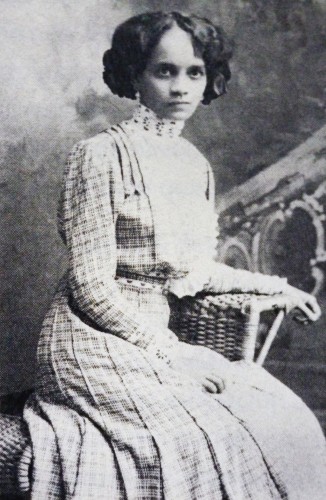
In Mexico, Lyra continued writing and maintaining her political commitment until her death on May 14, 1949. Her passing in exile was a somber epilogue to the life of a woman who had dedicated much of her existence to fighting for a more just society. Despite her repeated requests to return to Costa Rica, she was denied entry to the country, highlighting the political polarization of the time and its impact on individuals committed to their ideals, like Lyra (Wikipedia).
The legacy of Carmen Lyra, both in literature and in social and political activism, remains alive in Costa Rica and beyond. Her contributions to education, literature, and politics continue to inspire future generations in the fight for social justice and equality. Her life reflects the complexity of social and political changes in Costa Rica during the 20th century, as well as the crucial role that dedicated individuals can play in promoting social change.
3. Literary Work
Los Cuentos de Mi Tía Panchita
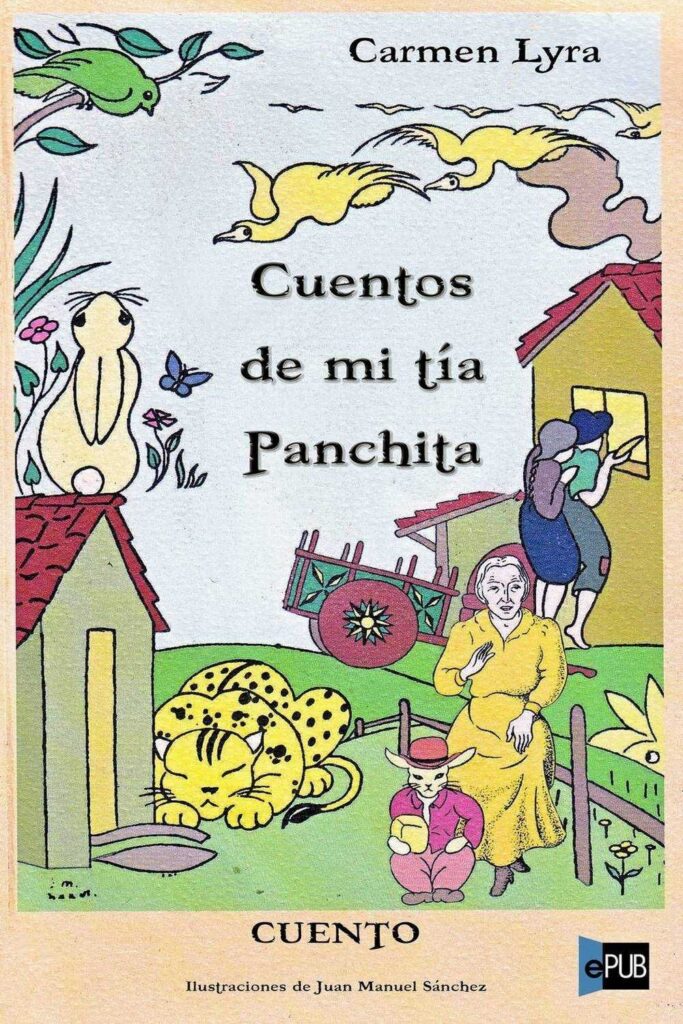
Los Cuentos de Mi Tía Panchita is undoubtedly Carmen Lyra’s most emblematic work. Published in 1920, this collection of stories is based on both Costa Rican and universal folklore, retelling traditional tales adapted to the cultural context of Costa Rica. The work stands out for its ability to intertwine the universal with the local, offering readers stories that are both accessible and deeply rooted in Costa Rican culture and landscape.
Lyra’s narrative style in this work is distinctive for its warmth and accessibility, aimed primarily at a young audience. However, the stories are also appreciated by adult readers due to the richness of their language and the depth of their themes. Lyra employs simple yet evocative language, capable of transporting readers to worlds of fantasy while encouraging reflection on universal values such as justice, kindness, and cleverness.
The critical reception of Los Cuentos de Mi Tía Panchita has been largely positive, with many considering it a cornerstone of Latin American children’s literature. Lyra is credited with capturing the spirit of Costa Rican folklore and making it accessible to generations of readers. Her contribution to the preservation of folk stories through literature has been an invaluable legacy for Costa Rica and the region.
En una silla de ruedas
En una silla de ruedas, Carmen Lyra’s first novel, published in 1918, departs from folklore storytelling to delve into the realm of social novels. Through the story of a paralyzed boy who grows up to become an artist, Lyra provides a sharp social commentary on the customs and manners of early 20th-century Costa Rican society. This work is notable for its sentimentalism and its ability to capture the bohemian life of San José, offering an introspective look into the protagonist’s challenges and aspirations.
Lyra’s style in this work is characterized by its emotional depth and its focus on the psychology of the characters. The novel explores themes of personal growth, art, and the struggle against physical and social adversities, presenting characters in situations that challenge their perceptions and propel them toward personal development.
The critical reception of En una silla de ruedas has highlighted its significance as one of the first works in Costa Rican literature to directly address the experience of disability, as well as its contribution to the social novel genre in Latin America. Through this work, Lyra establishes herself as a storyteller capable of tackling complex themes with sensitivity and depth, cementing her reputation as one of Costa Rica’s most important literary figures.
Study of Themes, Style, and Critical Reception
Carmen Lyra’s works are distinguished by their commitment to social issues, their focus on justice and equality, and their deep humanism. Her narrative style combines simplicity with depth, allowing her to address complex themes in an accessible and emotionally engaging manner. Through her stories and novels, Lyra became a critical voice of her society, exploring tensions between tradition and modernity, wealth and poverty, and justice and oppression.
The critical reception of Lyra’s work has evolved over time, with increasing recognition of her contributions not only to Costa Rican literature but also to Latin American literature as a whole. Her works have been studied for their literary value as well as their social and educational impact, emphasizing her ability to transcend generational and cultural boundaries. Carmen Lyra is celebrated not only as a pioneering writer but also as a social reformer whose legacy continues to inspire new generations to fight for a fairer and more equitable world. Her ability to merge literature with politics and education establishes Carmen Lyra as a transcendent figure in Latin America’s cultural history.
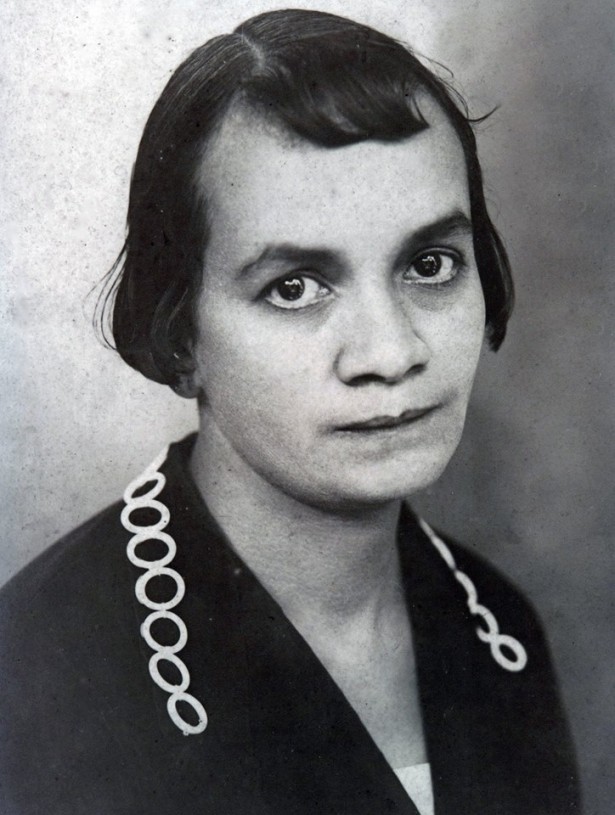
4. Contributions to Education
Carmen Lyra stood out notably for her work as an educator and her pedagogical innovations in Costa Rica. Her passion for education and commitment to educational reform led her to introduce and promote the Montessori method in the country, marking a turning point in Costa Rican pedagogy.
Introduction of the Montessori Method in Costa Rica
Lyra was a pioneer in adopting the Montessori method in Costa Rica. After receiving a government scholarship to study in Europe, she took the opportunity to learn about new experiences in preschool and school education across the continent. During her time abroad, she became familiar with the Montessori method, which promotes children’s autonomy and self-learning in a prepared and stimulating environment.
Upon her return to Costa Rica in 1921, Lyra applied what she had learned in Europe and implemented the Montessori method at the Escuela Normal de Costa Rica, where she chaired the Children’s Literature Department. Her innovative approach to education emphasized the importance of respecting each child’s individual learning pace and fostering their holistic development.
Founding Educational Institutions and Pedagogical Publications
In 1925, Carmen Lyra founded the first Montessori Nursery School in San José, dedicated to preschool education for underprivileged children. This school became a model of progressive education in the country, demonstrating Lyra’s commitment to inclusive and high-quality education for all sectors of society.
Beyond her direct work with children, Lyra made significant contributions to pedagogy through her educational publications. She was the director of Revista San Selerín, Costa Rica’s first children’s magazine, which not only provided educational content and entertainment but also served as a platform for promoting social change and educational reform.
Lyra also championed the creation of “Permanent School Colonies,” aimed at improving students’ health and well-being, and was involved in the proposal and establishment of the Patronato Nacional de la Infancia in 1930. This institution sought to centralize and improve child protection policies in Costa Rica, addressing education, health, and overall child welfare.
Carmen Lyra’s contribution to education in Costa Rica is indelible. Her efforts to introduce innovative pedagogical methods, her work in founding educational institutions, and her pedagogical publications not only transformed education in Costa Rica but also left a lasting legacy that continues to influence pedagogy in the country. She is remembered not just as a great writer and activist but also as a visionary educator whose passion for learning and social justice shaped the future of Costa Rican education.
5. Legacy and Recognitions
Carmen Lyra’s impact on the culture, education, and literature of Costa Rica and Latin America is undeniable. Her work and ideas have influenced subsequent generations, not only through her literary contributions but also through her social and educational activism.
Impact of Her Work and Ideas
Carmen Lyra left a lasting legacy that goes beyond her literary work. As an educator, she introduced innovative pedagogical methods in Costa Rica that emphasized children’s holistic development and promoted education as a universal right. Her focus on social justice and educational equity has inspired generations of educators, activists, and writers to follow her example and fight for a more just society.
Her literary work, especially Los Cuentos de Mi Tía Panchita, remains a cornerstone of children’s literature and a testament to her ability to intertwine folk narratives with universal values. Her stories and novels continue to be studied and appreciated for their cultural relevance and critical perspective on social realities.
Posthumous Recognitions
Carmen Lyra’s significance has been acknowledged through numerous tributes and posthumous recognitions. In 1976, the Legislative Assembly of Costa Rica awarded her the title of Benemérita de la Cultura Nacional (Distinguished Figure of National Culture), recognizing her invaluable contributions to the country’s culture and education.
Her legacy was further immortalized in Costa Rican currency when, in 2010, she was chosen to appear on the 20,000-colón bill. This inclusion not only honors her literary and educational contributions but also underscores her importance as a historical figure in Costa Rica.
Her influence extends beyond official recognitions. Schools, libraries, and cultural spaces bear her name, ensuring that her legacy remains alive in collective memory. Additionally, academic studies and publications continue to explore her work and life, offering new interpretations and highlighting her relevance in contemporary social and cultural contexts.
Carmen Lyra is remembered not only for her tangible contributions to literature and education but also for her tireless fight for social justice. Her life and work continue to inspire those who seek a more just, equitable world filled with opportunities for all, especially the most disadvantaged.

6. Criticism and Controversy
The life and work of Carmen Lyra were not without criticism and controversy, particularly regarding her political activism. Her commitment to the Costa Rican Communist Party and her fight for social justice sparked admiration but also provoked conflicts in a country marked by political polarization, especially during the 1930s and 1940s.
Political Activism
Lyra’s political activism was a source of controversy, particularly during the Costa Rican Civil War of 1948. Her affiliation with the Communist Party and active participation in social and political movements were criticized by conservative sectors of Costa Rican society. This political commitment was the main reason for her exile in Mexico, where she lived until her death in 1949. Despite her contributions to education and literature, her political activism was viewed with suspicion by those in power, leading to a negative assessment of her legacy by certain sectors for several years after her death.
Reception of Her Work in the Modern Context
In today’s context, Carmen Lyra’s work is being reevaluated and appreciated from a broader perspective, considering her impact on Costa Rican literature, education, and society. Her contributions to pedagogy and her role as a pioneer of Montessori education in Costa Rica are widely recognized and celebrated. Los Cuentos de Mi Tía Panchita remains a classic of children’s literature in the country, valued both for its literary quality and its ability to convey universal values.
However, critical analysis of her work also examines the political dimensions of her writing and activism, offering a more nuanced and complex view of her legacy. In academic and literary circles, her commitment to social justice and her fight against inequality are now seen as essential components of her contribution to Costa Rican culture. Discussions about Lyra in the modern context address not only her literary work but also her social and political impact, recognizing her as a pivotal figure in Costa Rica’s history.
Despite the controversies that shaped her life, particularly those related to her political activism, Carmen Lyra’s legacy is now a subject of study, admiration, and respect. Her life and work stand as a testament to the power of literature and education as tools for social change, and her influence continues to inspire new generations in the struggle for a more just and equitable society.
7. Carmen Lyra in the 21st Century
The figure of Carmen Lyra and her work remain highly relevant in the 21st century, both in literature and education in Costa Rica. Her ideals and legacy transcend time, influencing contemporary generations as well as today’s social and educational movements.
Influence on Contemporary Costa Rican Literature and Education
In literature, Carmen Lyra is considered one of the most important voices in Costa Rican narrative. Los Cuentos de Mi Tía Panchita continues to be a fundamental work in children’s literature, not only for its aesthetic and cultural value but also for its ability to teach and instill values in new generations. Costa Rican schools still include her works in their curricula, ensuring that her worldview and sensitivity to social and ethical issues reach young readers.
In the field of education, Lyra’s introduction of the Montessori method has had a lasting impact on the country’s pedagogical practices. Her emphasis on the child’s holistic development and on the importance of an education that respects each student’s individual pace and needs remains relevant in contemporary educational discussions. Educational institutions and teacher training programs in Costa Rica continue to explore and apply Montessori principles, reflecting Lyra’s enduring influence in this field.
Relevance of Her Ideals in Today’s Social and Educational Movements
The ideals of social justice, equity, and human rights that Carmen Lyra championed throughout her life resonate strongly in today’s social and educational movements. In an era marked by debates on inclusion, gender equality, and the fight against inequality, Lyra emerges as an inspiring figure who anticipated many contemporary concerns.
Feminist movements and organizations advocating for children’s and workers’ rights see Lyra as a role model. Her life as an intellectual woman, educator, and political activist who defied the conventions of her time serves as a valuable example of commitment to social transformation.
Furthermore, in a world facing complex educational challenges, Lyra’s innovative and humanistic approach to education offers relevant perspectives for rethinking how teaching and learning should take place in the 21st century. Her belief in education’s potential to transform individuals and societies continues to inspire educators, parents, and policymakers in their pursuit of fairer and more effective educational systems.












